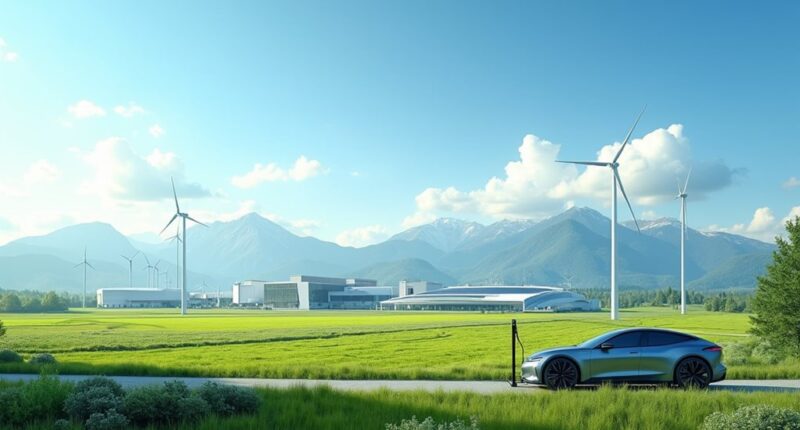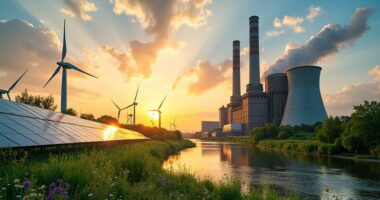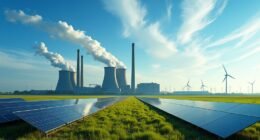Europe’s ambitious clean industrial dream aims for a decarbonized economy by 2050, with a pivotal 90% emissions reduction by 2040. This isn’t just wishful thinking; there’s a roadmap to invigorate energy-intensive industries like steel and chemicals, bolstered by support for clean tech and affordable energy measures. However, rising energy prices and fierce competition pose real threats. It’s a balancing act, but the potential for transforming industries into green success stories is palpable. Stick around for the bigger picture!
Europe’s Path to Sustainable Industrial Growth
Europe’s Clean Industrial Dream is not just a lofty aspiration; it’s a strategic vision that aims to transform the continent’s industrial landscape into a beacon of sustainability. The goal is ambitious: a decarbonised economy by 2050, with a vital milestone of a 90% emissions reduction by 2040 compared to 1990 levels. This is not just a distant daydream—it’s a roadmap called the Clean Industrial Deal, which aims to reindustrialise Europe while going green. Think of it as swapping out the old gas guzzler for a shiny electric vehicle; it’s all about making sure the journey to sustainability doesn’t stall.
At the heart of this plan lies a focus on energy-intensive industries like steel and chemicals, and an invigorated clean-tech sector. The strategy boldly positions decarbonisation as a growth driver, replacing vague targets with concrete goals and actionable policies. It’s like moving from scribbled notes to a detailed business plan—much more effective for steering the ship. Moreover, the deal aims to target scaling up clean energy production and deployment, ensuring industries have access to affordable energy. Additionally, affordable energy measures are being implemented to lower energy bills for industries, businesses, and households.
Decarbonisation is the new growth driver, transforming energy-intensive industries into a detailed roadmap for sustainable success.
However, there’s a twist: the specter of deindustrialisation looms large, threatening Europe’s industrial base amid soaring energy prices and fierce global competition. The Clean Industrial Deal aims to counteract this by boosting manufacturing capacity for clean energy technologies. It’s as if Europe has decided to flex its muscles in the gym of innovation, preparing to lift weights while keeping an eye on the competition—because no one wants to be the last one picked in the game of global industry. These targets reflect a commitment to establishing science-based goals that align with the latest climate research on limiting global warming.
Support for clean technologies is also on the table, with measures designed to stimulate both supply and demand. The Industrial Decarbonisation Accelerator Act is like giving a turbo boost to low-carbon manufacturing. Meanwhile, investments are being mobilized to guarantee that Europe remains a heavyweight in the global industrial arena.
Ultimately, as Europe gears up for this monumental shift, it aims not just to dream big but to guarantee those dreams translate into a reality that benefits both the economy and the planet.









